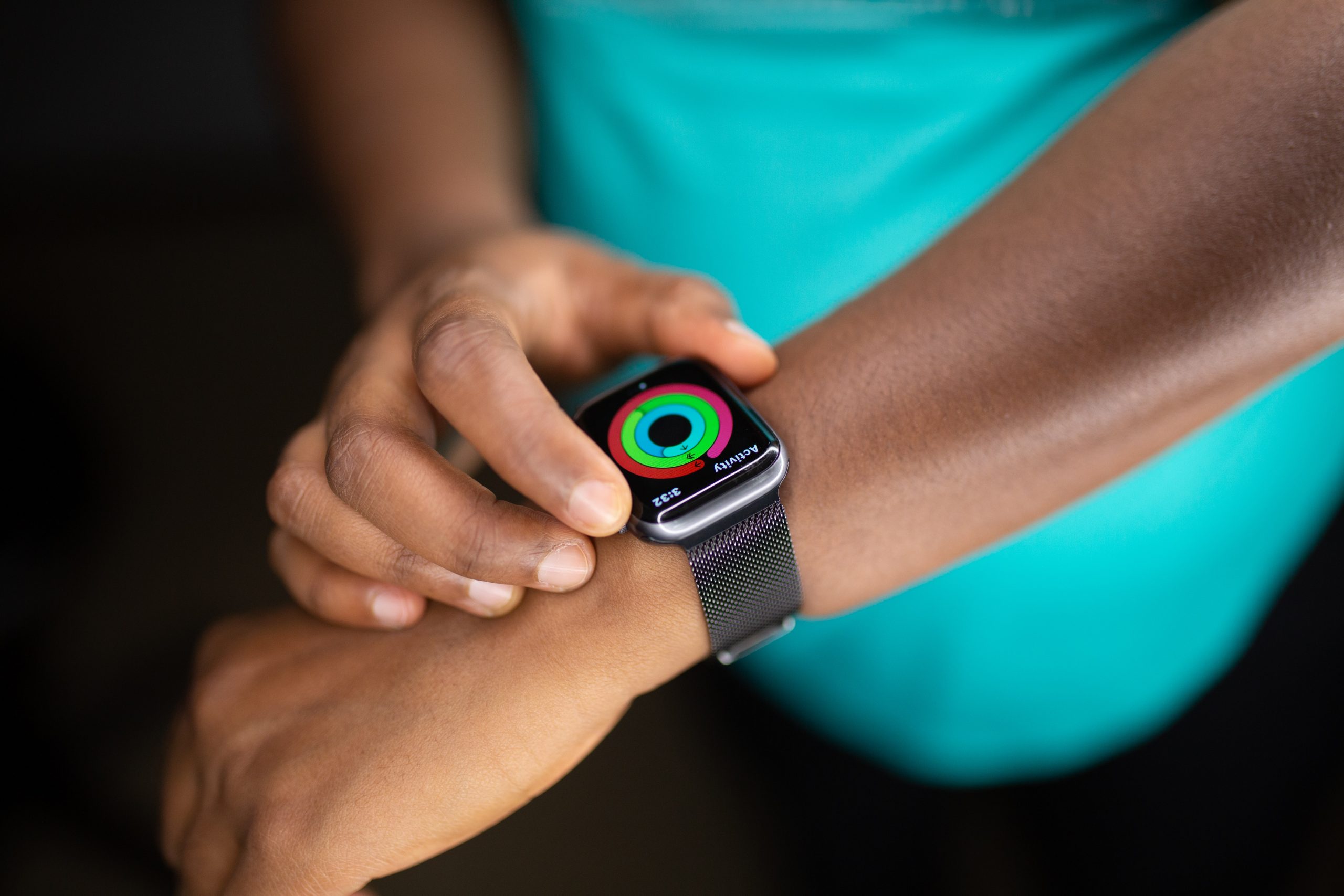Futureproof your Coaching Business – Megan Burgess-Hudson

2022 and Beyond
The growth in the coaching industry is undeniable over the last two years especially and, during these peaks of industry, we need to understand what these trends are all about and how they can be useful for our coaching businesses in 2022 and beyond.
Coaching helps us to cope better, to regulate ourselves, raise our performance to achieve our goals, improve our work/life balance; develop self-awareness and assertiveness; increase confidence; develop better relationships and interpersonal skills and adapt to change more effectively.
Why has the coaching industry exploded?
COVID change our world forever.
Many people became unemployed and displaced by technology during the pandemic.
Some may have received training in their former positions and emerged as qualified coaches with some relative experience.
Some made choices to resign and large numbers of people resigning without a job to go to is perhaps one of the big contributors to coaching industry growth.
This raises the question of training and places a focus on the calibre of emerging coaches and on their experience and their results.
As people have developed a greater sense of their own mortality during this time, a yearning to live a more purposeful and meaningful life has risen up.
Our society has suffered a fundamental shock and reset and now the desire to want to leave a legacy, give back and help others is paramount to many who become coaches.
This LinkedIn date demonstrates this extraordinary industry growth
December 2020 LinkedIn figures (based on search results for globally open specific terms not locations bar South Africa specific search ):
Coach: 1,603,532 search results
Coach South Africa: 27,226 search results
Executive coach: 109,051 search results
Business coach: 137,029 search results
Life coach: 81,579 search results
December 2021 LinkedIn figures (same specific search and results)
Coach: 6,640,000 search results (+-314% growth)
Coach South Africa 107,000 search results (+-293% growth)
Executive coach: 1,300,000 search results (+–1,092% growth)
Business coach: 3,180,000 search results (+-2,220% growth)
Life coach: 1,360,000 search results (+-1,567% growth)
There is an enormous growth in executive coaches, business coaches and life coaches and we can assume this to be a variety of trained and untrained coaches.
As coaching is an unregulated industry with no requirement for training, this leads many to perceive it as an easy pathway to success.
Covid accelerates 4th and 5th industrial revolution
The Fourth Industrial Revolution is the ongoing automation of traditional manufacturing and industrial practices using modern smart technology.
Large-scale machine-to-machine communication and the internet of things are integrated for increased automation, improved communication and self-monitoring with the production of smart machines that can analyse and diagnose issues without the need for human intervention.- https://www.elastosorchard.eu/…
It can be argued this has led to a level of dehumanisation and sense of alienation in the workplace.
Additionally, COVID has seen *80% of consumers now understanding the world as all digital (Forrester*) and this has afforded us the opportunity to work in the global arena.
The world now has a buyer expectation for immediacy and instant gratification so, for any problem, an immediate solution is expected.
This creates an opportunity for coaches to get more explicit about the work they do and focus on the zones of specialisation and niche to serve this expectation with integrity.
So, as coaches, we need to clearly demonstrate the services offered and what will be specifically achieved as a result of working with us.
The rise of Artificial Intelligence coaches
Dr Nicky Terblanche and a team at USB in South Africa have developed an artificial intelligence coaching app – Coach Vici.
Early research on the app showed that people using it were more likely to achieve their goals.
Of course, we are all familiar with the coaching apps that give us workouts etc, but that’s not coaching in the context of this article.
The ‘Hello Coach’ app has been developed for employee wellness and there are online AI medical coaches and more.
One of the huge advantages of AI/chatbot coaches and coaching apps is the accessibility and consequential democratisation of coaching experience.
They aren’t here to replace real live people and human relationships, but to showcase our offerings and enrich our clients’ coaching journey.

Virtual Reality & Wearable Technology
The virtual reality space offers some exciting possibilities to enhance our coaching.
Imagine this introduction of virtual reality into a team coaching session to deal with scenario planning and decision-making under simulated circumstances. Can you explain that more simply.
It has the added potential to help in assessing the risk/reward of planned strategies. How?
Many of us, including our clients are wearing what is called “wearable technology”. We have smart phones and smart watches that can measure everything from heartrate variability to stress levels and sleep quality.
10% of the world’s population now wear accessories or apparel connected to the internet (quantumrun.com) and neuroscience is starting to make innovative and exciting inroads into the sporting arena.
Coaches at a premier league UK football club have realised that when athletes are at their peak of possible fitness and performance levels, there’s very little that can be tweaked in terms of diet, training and conditioning.
They are now exploring neuroscience to explore brain activity in key players to see if they can create a greater competitive edge by understanding, assessing and changing neurological responses and reactions.
Imagine being able to monitor the brain activity and neurological responses of a client to understand what is happening in their lives or in the workplace and devising strategies to cope better.
Many coaches already base their work on neuroscience so the question is whether it can progress usefully from data collection and analysis in to useful predicted analytics and be successfully implemented for growth.
It is likely we will see a future where we will use accessible AI and applied neuroscience used in conjunction with coaching.
The 5th Industrial Revolution
This technology is also expanding into the 5th Industrial Revolution.
The World Economic Forum puts it this way: “In contrast to trends in the Fourth Revolution toward dehumanization, technology and innovation best practices are being bent back toward the service of humanity by the champions of the Fifth … In the Fifth Industrial Revolution, humans and machines will dance together, metaphorically.”
So there’s a return to the recognition of the need for human touch and humanity in order to be effective alongside technology.
Imagine working with a team and waking up to a report giving you valuable information on the team you are coaching.
Example 1: Mary’s sleep quality has been poor for the last few nights. There is a direct correlation between her sleep quality and her ability to make good business decisions. Perhaps you could encourage her to set aside important decisions for another day, or to work more closely with a colleague on making these decisions.
Example 2: Dave has been exhibiting signs of high levels of stress if we refer to his HRV. Perhaps he needs to focus heavily on mindfulness practice and also taking regular breaks from his desk plus introducing other strategies to reduce cortisol levels in his system.
Big data allows for a more humanistic, somatic and human-centred approach. This offers the possibility to catapult the effectiveness of coaching to another level.
It will need to have a whole school of ethics dedicated to this and this work is in progress in progressive organisations like the ICF.
Wellbeing during change
There are also worryingly increasing trends towards higher levels of stress, anxiety, overwhelm, burnout, fatigue and a loss of resilience.
The word burnout is prevalent.
There is a noticeable increase in underlying conditions like depression and PTSD and our own clients are stressed about performing in their jobs, keeping their jobs and managing changes in their workplace and home life.
In my 2021 trends prediction, I highlighted the importance of high levels of psychological literacy and this (in my opinion) is one of the hallmarks of a great coach.
Most professional bodies have an ethics policy for coaches to cross-reference and adhere to but we’re also dealing with fear, uncertainty, grief, PTSD, depression and other mental health and wellbeing with our clients.
There is a lot to balance and, as coaches, we have a new responsibility and need to develop new sets of skills and abilities to support these clients. This may include mental health training and trauma-informed approaches among others.
Coach supervision and self-care becomes more important for us as coaches than ever before.
Diversity, Equality and Inclusion
With the “Internet of Things”, robotics, and Artificial Intelligence replacing people globally workplace, we find ourselves coaching across not just borders, but cultures.
Developing cultural competence is a fundamental requirement for a coach so that we can observe a deep understanding of different cultures – as well as (potentially) being multi-lingual.
As we navigate an era of identity politics and of individualism, we need to focus on our sensitivity and ability to deal with identity without judgment – which is quintessential to being a good coach.
Coaching online demands the need to become more highly trained in recognising ‘the words behind the words’; the meta-language, body language and micro-expressions in the virtual coaching environment. NLP training is just one way to expand our awareness and skills in this area of communication.
What makes a skilled virtual coach?
- Video and audio engagement
- Building meaningful rapport
- Empathy, emotion, honesty
- Creating trust and holding space for the relationship
These all develop the online/virtual experience and it’s our duty as coaches to create and sensitively balance these skills.
With online coaching, other additional resources for clients and coach to stay connected are being implemented and the ICF has identified a trend towards additional touchpoints between coaching sessions through the use of apps like WhatsApp, Voxer and Telegram.
The increased automation processes for on-boarding clients are also becoming automated, using automation (online assessments, questionnaires, surveys)
The use of virtual assistants is a common practise to support with marketing, social media, admin and tech.
Business growth
Coaches are expanding their business growth through product suites to include group coaching programmes, masterminds, consulting, facilitation, training, workshops and personality profiling as well as products.
This expansion creates specific development pathways around certain common problems and challenges for your clients and offers a new set of resources to support them in achieving a particular goal. This can be supported by “traditional” 121 coaching or self-paced and achieved in silos.
Many who may have been viewed as ‘competitors’ are now collaborating and working together to reach more clients and create more impact. There are many opportunities online for this way of working.
Marketing your coaching practice
Coaches are also creators of content and rely on this to generate business.
Quality content drives business and drives traffic to website by up to 2000% and video drives 50 times more organic traffic to websites.
Consistency is key and it can take between 18 months – 3 years to create a sustainable coaching practice.
Many early entrepreneurs less than 5 hours per week yet stats showed least 10 hours per week/ 2 hours per day is required ? qualify for what results
This changes the perspective on how your time is allocated and invites you think differently about your hourly rates. What do you mean here?
As a marketing specialist I can teach all tricks in the marketing book but it all needs implementing and so the time devoted to marketing is a priority especially as more and more content is flooded into the marketplace. This also shows the demand and opportunity.
The ICF continues to emphasise that coaches specialising in niche/specialist areas will see more employment opportunities than coaches who don’t specialise so finding and defining your niche reinforces your ability to market effectively and successfully.
So, is”traditional” coaching dead?
It depends on your concept of this. In person is already back to common practise so if your version of traditional is in person, then no. Also no as we continue to adopt new advancement and welcome it. Coaching by definition is a creative practise designed to explore and stretch minds to find new solutions, both for us and our clients. When we stop adapting and exploiring, then it is over. There is, however, an increasing need for blended approaches in coaching and the opportunity to add mentoring, training, teaching to grow our businesses both locally and globally.
Megan is based in South Africa has been coaching since 2002. She is a Time to Think practitioner and former Insights coach and facilitator. She holds a post-graduate diploma in Management Coaching from the University of Stellenbosch’s Business School.
Founder of The Marketing & Sales Accelerator for Coaches, her professional background is in brand marketing and advertising. She now specialises in working with marketing and sales averse coaches to help them find and define their niche, create a compelling marketing message.
She is proud to be the only marketing coach with both a marketing background and the experience of leading the marketing and member communications for a professional coaching body, COMENSA (Coaches & Mentors of South Africa).
As a member of the faculty of the African Centre for Work-Based Learning and an external facilitator for The Coaching Centre, Megan has been featured on television, spoken on radio and is widely published to include COACH Magazine, SA Coaching magazine and the Library of Professional Coaching.
References
Edelmann-Nusser, J. and Hohmann, A. “Modeling and prediction of competitive performance in swimming upon neural networks.” European Journal of Sports Science. 2002;2(2).
Rossi, A., Pappalardo, L., Cintia, P., Iaia, F.M., Fernàndez, J. and Medina, D. “Effective injury forecasting in soccer with GPS training data and machine learning.” PLOS One. 2018;13(7).
Zhao, et al., “ATRank: An Attention-Based User Behavior Modeling Framework for Recommendation.” Presented at the 32nd AAAI Conference on Artificial Intelligence (AAAI-18), 2018.





